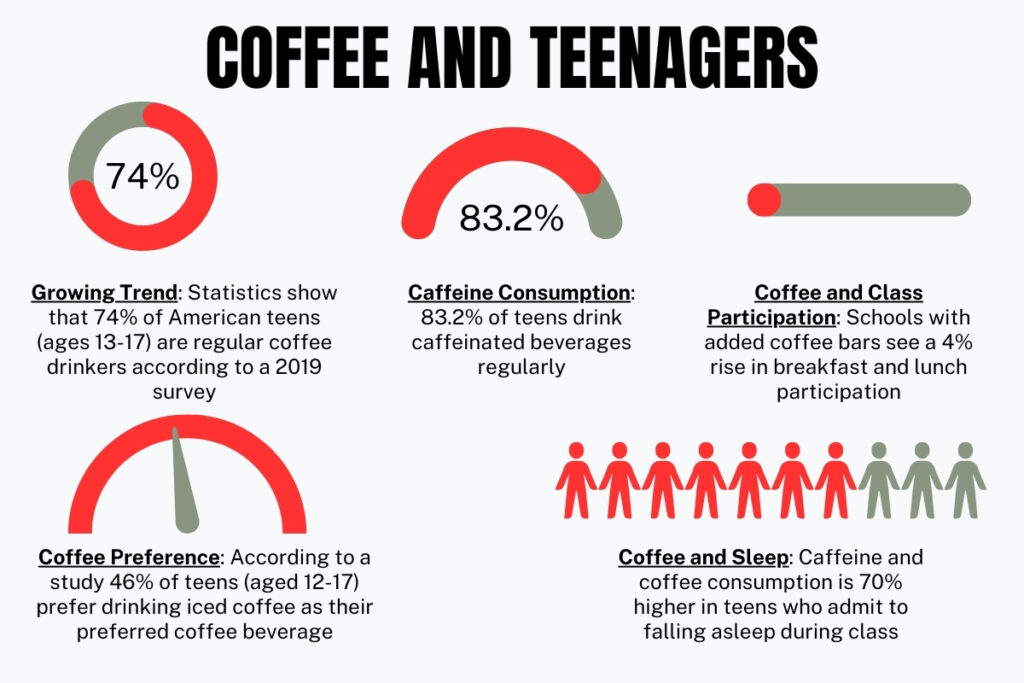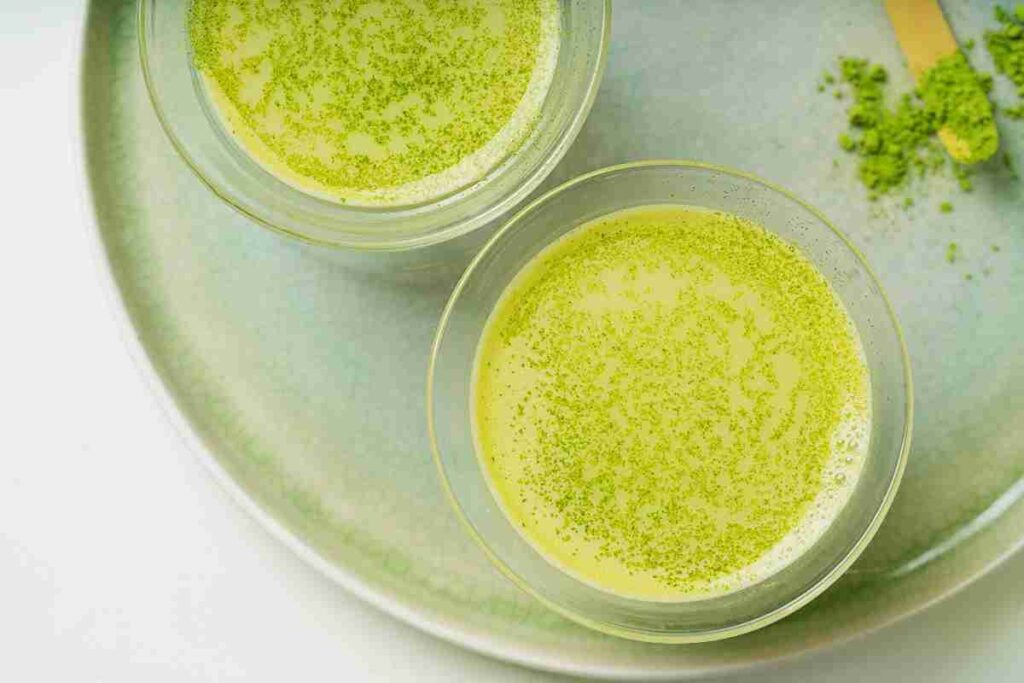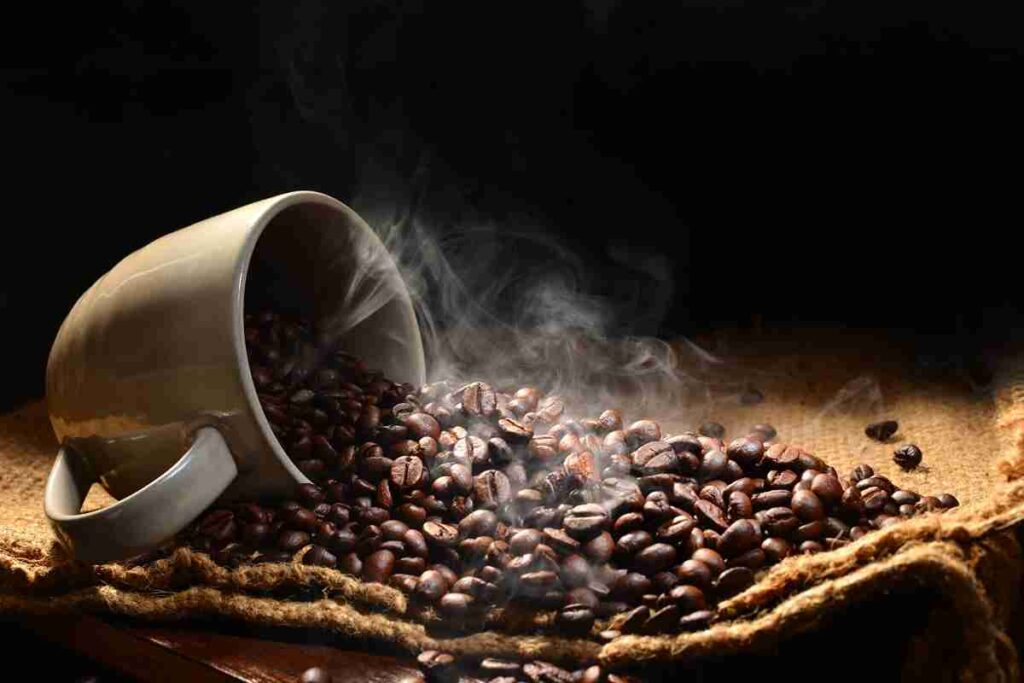
Practical Tips To Get The Perfect Part-Time Job as a College Student
December 17, 2022
How To Master Education Loan Repayment For A Stress-free Life
December 17, 2022Is Coffee For Study Good for Students?
We’ve all felt that amazing clarity kick in after a good coffee break. It is very common to have late-night coffee breaks during study. It’s like going from “I can barely keep my eyes open” to “I’m ready for anything!” Is there any relationship between coffee and effective studying, or is the former simply a soothing crutch for the sleep-deprived student? So, in this article, we will talk about coffee for studying and its effect. So, take a cup of coffee and read on to discover its benefits for studying.
The Science Behind Coffee’s Focus Boost
Before you say that my grades shoot up due to late-night study with coffee breaks, it’s important to understand the science behind how a simple cup of coffee for studying is a magic formula for so many students across the globe. The catalyst is caffeine, a natural stimulant that inhibits the neurotransmitter adenosine, which promotes sleep and relaxation. With adenosine removed, other neurotransmitters such as norepinephrine and dopamine take over, increasing brain activity and preventing tiredness. Well, in simple words, Caffeine is like a superpower that stops the sleepy feeling in our brains. It’s like telling our body’s sleepiness to take a break, so we can feel more awake and energetic.
The Effect on Alertness and Wakefulness
With each sip, coffee’s caffeine content acts on the brain’s receptors, increasing alertness. This can be particularly potent during study sessions when concentration is required and the tendency to sleep grows stronger.
Improved Cognitive Function and Memory
For memory-based tasks like writing exams, essays, articles, etc., coffee enhances one’s ability to increase long-term memories and retrieve other memories. It’s like a turbocharger, where new information can enter and old information can exit effectively, making students opt for coffee for studying. Drinking one to three cups of coffee a day may decrease the risks of chronic conditions such as heart failure and Alzheimer’s disease.
Enhances Mood and Reduces Stress
Drinking coffee has been shown to have a positive impact on mental health, particularly in reducing stress and improving mood. The caffeine in coffee can help increase the production of neurotransmitters such as dopamine, which can help improve mood and reduce symptoms of depression. Additionally, the antioxidants present in coffee may also contribute to its mood-boosting effects.
Studies have found that moderate coffee consumption, defined as 3-4 cups of coffee per day, may be associated with a lower risk of depression and anxiety. Furthermore, a study conducted by Harvard University found that people who drank coffee every day were 20% less likely to become depressed.
However, it’s essential to note that excessive coffee consumption can have negative effects on mental health, particularly in individuals who are sensitive to caffeine. High levels of caffeine can lead to increased anxiety, jitteriness, and an inability to sleep, which can exacerbate stress and negatively impact mood.

Perfect Cup for Studying

As every student is different in terms of their body and brain, there are too many choices over coffee for each one of you. For example, selecting between light and dark roasts, single origins, and blends, as well as different brewing methods, can be the deciding factor between a study session filled with deep understanding and memory retention vs. one with distracted yet enjoyable flavours.
Types of Coffee with Caffeine Content
Each type of coffee has a different caffeine content and thus you should try a sip of all commonly available types to understand the best one suited for you. A widespread misunderstanding is that dark roasts have more caffeine than light roasts. In reality, roasting level has little effect on caffeine levels, but it does have an impact on taste profile. For pure attention, choose a light roast. Its increased acidity may be just what you need to get through the study day. It is generally recommended to consume 3-5 cups a day to enjoy the health benefits without overconsumption.
The Art of Brewing for Focus
Several brewing methods can refine the coffee’s taste and energy release. It may not be possible for you to brew coffee in college or late-night sessions, but you should understand the importance. A pour-over provides a crisp, detailed taste that is great for deconstructing complex theories. On the other hand, a French press provides a deeper, more robust experience, which may be appropriate for subjects that require continuous focus over lengthy periods. Cold brew remains supreme in terms of productivity, providing a steady, prolonged flow of energy that can help you navigate the path of literature, theories, and difficult challenges.
The Favourite Black Coffee

At the block, coffee remains an all-time favourite not only with students but also with elders. For students looking for the perfect coffee for studying, opting for a coffee without sugar, cream, or flavourings minimizes the risk of a post-caffeine sugar crash, maximizing alertness and focus at a crucial time.
Maximizing Your Coffee-Powered Study Session
A well-planned strategy for caffeine intake is crucial for a productive study session. The amount consumed, and the timing, significantly affect how coffee enhances academic performance. Drinking at least one cup of coffee a day can be associated with various health benefits, including a lowered risk of stroke and heart failure.
Timing is Key
You can increase your focus during study breaks by precisely timing your coffee intake. Concentrate your caffeine consumption such that its peak effects coincide with the most difficult sections of your study session.
The Law of Caffeine Dosage
The Goldilocks rule is all about finding that perfect amount of caffeine in a study session – not too little, not too much, just what your body can handle, especially when you’re studying. If you drink too much coffee, you’ll invite a bunch of troublemakers like nervousness and shaky hands during your study time, making it hard to concentrate.
Negative Effects on Health
While moderate coffee consumption may have several health benefits, excessive coffee consumption can have negative effects on health. High levels of caffeine can lead to:
Increased anxiety and jitteriness
Insomnia and disrupted sleep patterns
Increased heart rate and blood pressure
Cardiac arrhythmias and other cardiovascular problems
Dehydration and electrolyte imbalances
Stomach upset and acid reflux
Additionally, adding large amounts of sugar, cream, and syrup to coffee can greatly increase calorie intake, which can contribute to weight gain and other health problems.
Coffee Alternatives for Focus

Coffee, though most of us prefer it, some students always look for alternatives. There are some great alternatives for students who do not use coffee for studying and prefer something healthier.
Check out these natural energy boosters for your daily routine:
Golden Milk: A traditional Indian beverage made with milk, ginger, cinnamon, turmeric, and black pepper. This blend is not only delicious but is also known for its anti-inflammatory and antioxidant properties. Plus, the milk adds a nice dose of protein and fat to keep you feeling full and satisfied.
Lemon Water: Loaded with vitamin C, lemon water can be a simple yet effective way to boost your health. Vitamin C helps your body absorb iron, essential for energy production. And let’s not forget, the zesty flavour of lemon is a great way to wake up without relying on coffee.
Kombucha: This fermented tea might sound a bit unusual with its mix of bacteria, yeast, and sugar, but it’s a fantastic drink for boosting your energy and improving gut health. It’s also low in calories, making it a guilt-free treat.
Green Smoothie: An excellent option for getting your daily veggies, green smoothies are packed with energy-boosting nutrients. Just blend your favourite greens like spinach or kale with some fruits for a delicious and energizing smoothie.
Protein-Based Smoothie: Protein is essential for keeping your energy levels up and supporting muscle mass. Adding Greek yoghurt, nut butter, or protein powder to your smoothie can make it an even more powerful energy booster.
Water: Sometimes, the simplest solution is the best one. If you’re feeling sluggish, drinking a glass of water can help. Staying hydrated is key to avoiding fatigue, so make sure you’re drinking enough water throughout the day.
The Bonus Potion
You can enhance your coffee by incorporating adaptogens, an herbal solution linked to stress reduction and improved mental clarity. You may add or infuse your coffee with Lion’s Mane mushroom or Ashwagandha. You can try a traditional herbal coffee mix from Kerala, India, made with dry ginger, black pepper, cumin, and Indian basil called “chukku kappi”. This could provide the perfect boost for your intense study sessions during the early hours.
Coffee as a Study Buddy, not a Crutch
During your college days, think of coffee not just as a support but as a companion helping you navigate those exams which require some additional concentration. Drink coffee wisely, it’s the combination of many wellness factors that creates the perfect study session.
A well-balanced body and brain are mandatory during college days for the enhancement of your academic performance. Coffee, or any study-enhancing beverage, is just that. It’s not a substitute for healthy habits and good sleep required for long-term academic success.
With this understanding, I leave it to you to find your perfect mix.
Weighing the Pros and Cons of Coffee for Students
As a student, it’s essential to weigh the pros and cons of coffee consumption to determine whether it’s beneficial for your health and academic performance. While moderate coffee consumption may have several health benefits and improve focus and concentration, excessive coffee consumption can have negative effects on health and academic performance.
To reap the benefits of coffee while minimizing its negative effects, consider the following:
Consume coffee in moderation, defined as 3-4 cups per day.
Avoid adding large amounts of sugar, cream, and syrup to coffee.
Be mindful of your body’s sensitivity to caffeine and adjust your consumption accordingly.
Avoid consuming coffee in excess, particularly in the hours leading up to bedtime.
Prioritize a healthy diet, regular exercise, and adequate sleep to support overall health and academic performance.
By following these guidelines, you can enjoy the benefits of coffee while minimizing its potential drawbacks, ensuring that your study sessions are both productive and healthy.
Bonus Section

Did you know that coffee’s rich history is as intriguing as its flavour? Initially known as ‘Qahhwat al-bun,’ Arabic for ‘the wine of the bean,’ the name coffee has evolved through languages and cultures, from ‘Qhawa’ to the Turkish ‘Kahve,’ until it was finally adopted into English from the Dutch ‘coffee.’ Contrary to what many believe, the beloved coffee beans are the seeds of a cherry-like berry from the coffee bush. This revelation might change the way you look at your morning brew!
The origins of coffee consumption are equally fascinating, with early African tribes creating energizing snacks by combining ground coffee berries and animal fat. Meanwhile, the energizing property of coffee was allegedly discovered by a goat herder in the 9th century, who noticed his goats frolicking energetically after eating the red fruits of the coffee plant. Today, coffee is cultivated around the globe but mainly falls into two categories: the mild and aromatic Arabica, and the stronger, more caffeine-rich Robusta.
Leading the world in coffee production is Brazil, a title it has proudly held for over 150 years, contributing significantly to coffee being the second most valuable traded commodity after petroleum. Interestingly, while they’re universally referred to as beans, coffee seeds are pits from berries, adding to the beverage’s mystique. Even more intriguing is the advent of coffee cultivation in the US, with states like Hawaii (famous for its Kona coffee) and California entering the coffee production scene.
Among the plethora of coffee varieties, the most peculiar and pricey comes from the Kopi Luwak process, involving the Asian palm civet. This sought-after coffee reaches prices of at least $600 per pound, due to its unique processing method through the civet’s digestive system. This compilation of coffee trivia not only enriches your coffee experience but also serves as a testament to coffee’s unwavering influence across cultures and centuries.




